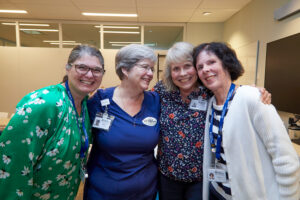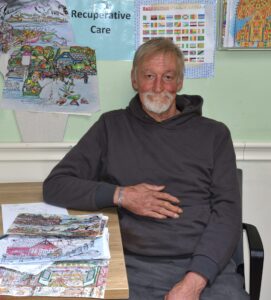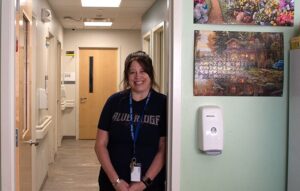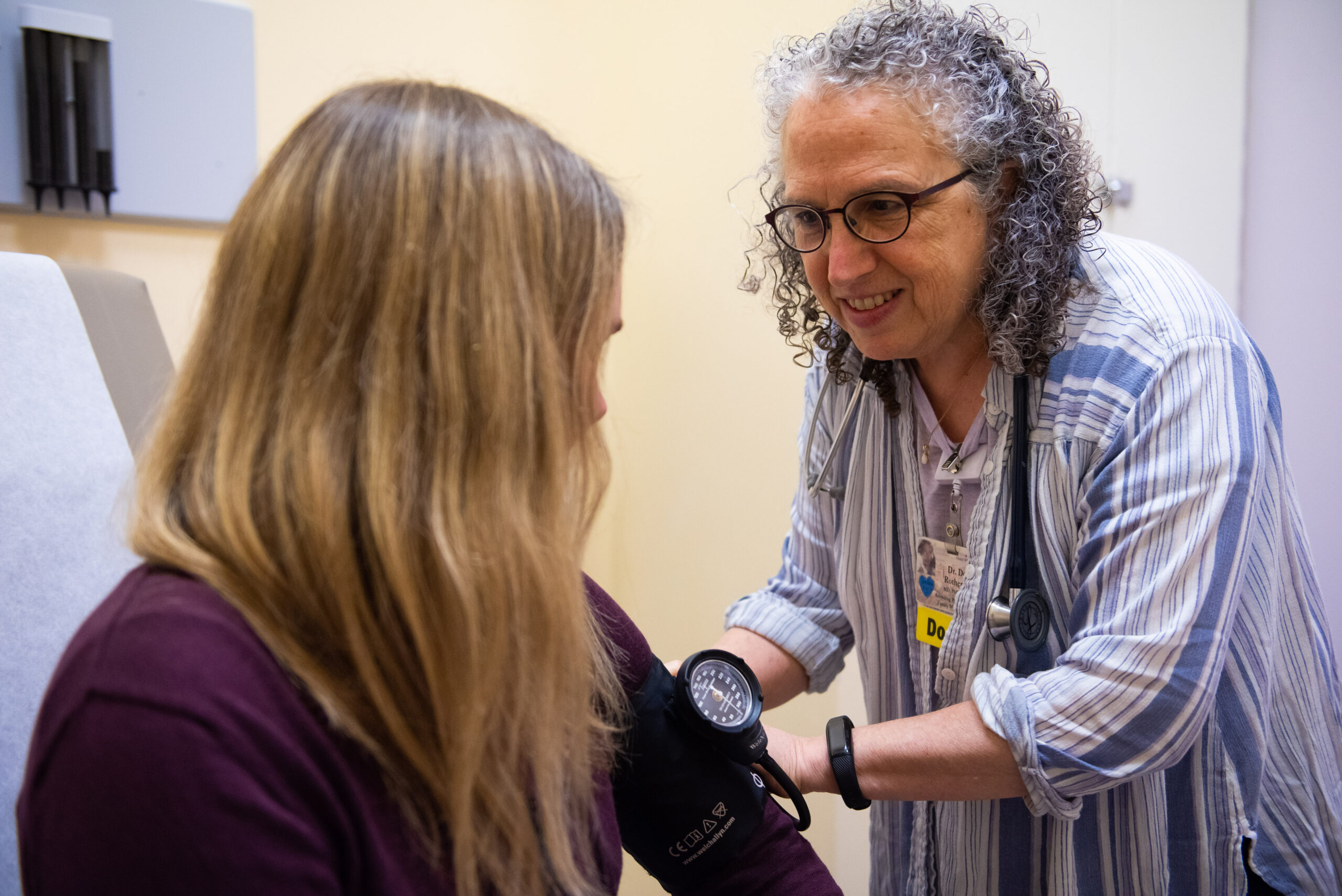People who are homeless experience severe physical and mental health outcomes, facing many barriers to accessing healthcare and treatment. These barriers can include things like the high cost of care, a lack of insurance, distance or transportation, and even prejudice from the medical community.
The MaineHealth-Preble Street Learning Collaborative (MH-PSLC) is a low-barrier, walk-in medical clinic in Portland, serving some of Portland’s most vulnerable community members experiencing homelessness. With dedicated social work staff and fewer barriers to care, the MH-PSLC helps to bridge the gap between unhoused people and the healthcare system, providing health services, care coordination, and health education. Eight years ago this month, MaineHealth Maine Medical Center Portland and Preble Street came together to establish the MH-PSLC.
Addressing barriers to care
Social work and social work principles are the heart of the work at the MH-PSLC. Preble Street social work staff and MaineHealth’s Homeless HealthPartners (HHP) case management team are co-located on-site. They build relationships with vulnerable, unhoused people in the community and establish a foundation of trust – listening to people, getting to know them as individuals, and helping them to meet basic needs, with food, toiletries, and other essential items. Dr. Adam Normandin is a family medicine physician at the MH-PSLC. He says, “here, our work starts with addressing the barriers to receiving treatment.” Another family medicine provider at the MH-PSLC, Dr. Debra Rothenberg, adds, “we practice what we call ‘slow medicine.’ We listen and learn who are patients are before we intervene medically.”
Preble Street and MaineHealth social work staff help people to navigate the complicated medical system, educating people on what resources exist, getting them to appointments, and moving people away from using costly services, like the emergency room. Dr. Rothenberg says, “our social workers work intensely alongside people in the community on how to navigate the medical system, empowering them with the information and tools to do it themselves too.” The social work staff at the MH-PSLC is what makes the medical work possible. Preble Street Director of Health Services, Caroline Fernandes, explains, “Many, for the first time, get major medical issues addressed because of the relationships they develop in this space.”


Dr. Debra Rothenberg & Dr. Adam Normandin at the MH-PSLC
Caroline Fernandes speaking at the 2021 Homeless Memorial Vigil
Accessible, low-barrier resources and essential services, like the MH-PSLC, help to meet people’s basic needs and lay the foundation for healthy and thriving communities. With adequate and accessible medical care, people can go on to live healthier, happier, and more productive lives. Low-barrier medical clinics can even help to save communities money, reducing the number of emergency room trips and shortening the length of hospital stays.
The MH-PSLC also educates future healthcare providers about the needs of people experiencing homelessness, so they can better serve patients. MaineHealth residents as well as interns, through Tufts University’s Tisch Fellowship program, are part of the staff at the MH-PSLC. It is a formative experience for many people, influencing the direction of their medical careers. In fact, Dr. Normandin began his medical career as a resident at the MH-PSLC and is now one of the attending physicians. He shares, “a life of service, helping others… it’s what we’re here for.”
Advancing health equity & access to services
Preble Street has many strategic partnerships with local medical providers and organizations, like MaineHealth, Tufts University, and Greater Portland Health, to advance access to health services for people experiencing homelessness. In addition to the MH-PSLC, Preble Street operates a Recuperative Care program (also known as medical respite care) for individuals recovering from an acute illness or injury when they can’t stay in a hospital. Preble Street also helped launch the recent mobile outreach program operated by MaineHealth, the CONNECT Van.
Continue reading about the MH-PSLC and Preble Street’s work to expand access to essential services for vulnerable people in Maine…

Compassionate end-of-life care for unhoused individuals
Preble Street’s work is never done in isolation. We are continuously making connections with other social service providers and nonprofits to better serve clients and the needs of the community. This month, we are highlighting a special partner of several of our programs, Hospice of Southern Maine. Hospice of Southern Maine (HSM) works to ensure

Brian’s Story
Sitting at a table at the Recuperative Care Program (RCP), Brian lays out pages of his art. “I’m working on making a children’s coloring book,” he says. Most of the pieces he has laid out are of captivating coastal scenes featuring birds, boats, and buoys. The longer you look at each page, the more you’ll

Staff Highlight: Caitlin Tobin – “I learn so much from our clients”
Preble Street staff are #CompassionInAction, and we want you to get to know them! This month we’re introducing you to Caitlin Tobin, 1st Shift Case Manager at the Recuperative Care Program. Name, title, and program: Cait Tobin, Case Manager, Recuperative Care Program (RCP) How long have you worked at Preble Street? I’ve been here for
